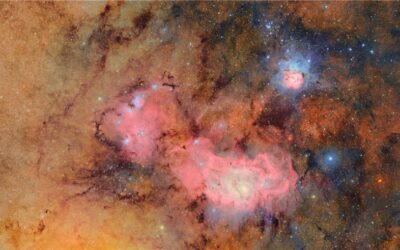Second DRI researcher to be recognized with this prestigious award
Reno, Nev. (September 10, 2021) – DRI announced that research professor Michael Dettinger, Ph.D., has been selected by the American Geophysical Union (AGU) to give this year’s Tyndall Lecture at the Fall 2021 AGU meeting. The prestigious Tyndall Lecture Award recognizes outstanding work in advancing understanding of global environmental change. Dettinger is the second DRI researcher to be recognized by AGU since the award’s inception in 2013. World-renown DRI researcher Kelly Redmond, Ph.D., was recognized with the second Tyndall Lecture award in 2014.
“I am deeply honored to be recognized with the Tyndall Lecture and to follow in the footsteps of Dr. Kelly Redmond,” said Dettinger. “I look forward to sharing my research at the Fall 2021 AGU meeting. My lecture will present a history of climate and water studies in the Western U.S. Water resources have not been a focus of previous Tyndall Lectures and with current conditions in the West, the time is right for taking a look at this history.”
Dr. Dettinger joined DRI several years ago following a long (38-year) career with the U.S. Geological Survey that began in Nevada with studies of Las Vegas valley groundwater and the carbonate-rock aquifers of Eastern and Southern Nevada in collaboration with DRI scientists in the early 1980s. His career has since focused on unraveling the complex interactions between water resources, climate variations and change, and ecosystems in the Western U.S. He recently co-edited a book on atmospheric rivers. He is a Fellow of the AGU and a Fellow of the American Association for the Advancement of Science.
“We are proud of Mike’s accomplishments and are honored that he has been awarded DRI’s second Tyndall Lecture Award,” said DRI Executive Director, Division of Hydrologic Sciences Sean McKenna, Ph.D. “Mike has sustained his considerable energy, curiosity and creativity over a long career resulting in ground-breaking insights on global environmental change. His ability to communicate his findings in clear language and his dedication to mentor other researchers is a shining example of what we strive for at DRI.”
The Tyndall History of Global Environmental Change Lecture is presented annually and recognizes outstanding contributions to our understanding of global environmental change. It honors the life and work of Irish physicist John Tyndall, who confirmed the importance of the greenhouse effect in the late 1800s.
###
The Desert Research Institute (DRI) is a recognized world leader in basic and applied environmental research. Committed to scientific excellence and integrity, DRI faculty, students who work alongside them, and staff have developed scientific knowledge and innovative technologies in research projects around the globe. Since 1959, DRI’s research has advanced scientific knowledge on topics ranging from humans’ impact on the environment to the environment’s impact on humans. DRI’s impactful science and inspiring solutions support Nevada’s diverse economy, provide science-based educational opportunities, and inform policymakers, business leaders, and community members. With campuses in Las Vegas and Reno, DRI serves as the non-profit research arm of the Nevada System of Higher Education. For more information, please visit www.dri.edu.
Media Contact:
Detra Page
Communications Manager
Detra.page@dri.edu
702.591.3786


